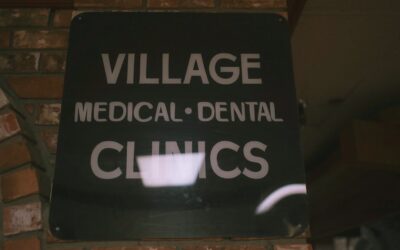Digital Marketing Strategies for Healthcare Success
Digital Marketing Strategies for Healthcare Success: How to Boost Patient Acquisition and Online Visibility

Healthcare providers face fierce competition for patient attention, yet digital channels offer precise targeting, compliance-safe engagement, and measurable growth. In this guide we map actionable digital marketing strategies for healthcare that drive patient acquisition, protect privacy under HIPAA, and elevate online visibility. You will discover top-performing tactics—from SEO fundamentals and content marketing to paid ads and social media reputation management—while learning how Dapper Market Solutions’ AI-driven, data-backed services support your practice’s growth goals.
This article covers:
- Core digital marketing channels for healthcare providers
- HIPAA-compliant platforms and workflows
- Patient acquisition tactics via PPC, referrals, and CRO
- Local and national SEO best practices
- Patient-centric content marketing formats
- Social media strategies for brand authority
- Digital advertising models to maximize ROI
What Are the Most Effective Digital Marketing Strategies for Healthcare Providers?
Digital marketing strategies for healthcare combine targeted promotion, educational outreach, and data-driven optimization to attract qualified patients and build lasting trust. Integrating SEO, content, social media, and compliant email marketing creates a multi-channel ecosystem that guides patients from search intent to booked appointments.
Digital Marketing Strategies for Healthcare
Digital marketing strategies for healthcare combine targeted promotion, educational outreach, and data-driven optimization to attract qualified patients and build lasting trust [3, 4, 5]. Integrating SEO, content, social media, and compliant email marketing creates a multi-channel ecosystem that guides patients from search intent to booked appointments [3, 10].
This source highlights the importance of digital marketing in healthcare, supporting the article’s emphasis on a multi-channel approach.
How Does SEO Improve Online Visibility for Medical Practices?
Search engine optimization (SEO) aligns medical practices with patient search queries by optimizing on-page content, technical health, and local signals to boost organic rankings. By structuring website pages around relevant keywords—such as “family physician near me”—and applying schema markup to service pages, SEO enhances click-through rates and increases appointment requests.
- Local citation consistency ensures address and phone details match across directories.
- Schema.org markup for MedicalBusiness and Service signals search engines about practice offerings.
- Optimized title tags and meta descriptions highlight specialty services to encourage clicks.
By reinforcing on-page relevance and technical health, SEO drives sustained visibility, making your practice the top choice when patients research care options.
Why Is Content Marketing Essential for Patient Engagement?
Content marketing educates prospective patients on conditions and treatments while establishing healthcare brands as authoritative resources. Creating blog posts, infographics, and downloadable guides answers common patient questions, improving dwell time and search rankings.
- Educational articles on disease prevention build trust and reduce no-show rates.
- Interactive checklists guide patients through pre-visit preparations, boosting appointment readiness.
- Downloadable eBooks on therapy options generate newsletter subscribers for nurturing.
Effective content marketing generates qualified leads by transforming website visitors into informed patients and strengthening practice authority in search algorithms.
How Can Social Media Marketing Build Healthcare Brand Reputation?
Social media marketing amplifies patient testimonials, clinical updates, and wellness tips across platforms—fostering community trust and referral traffic. Engaging posts that comply with privacy regulations encourage shares and dialogues.
- Patient success stories with consent drive word-of-mouth referrals.
- Live Q&A sessions on Facebook or Instagram promote transparent care practices.
- Reputation management tools monitor and respond to reviews on healthcare directories.
A well-executed social media strategy humanizes medical brands, elevates patient confidence, and supports local SEO through increased brand searches.
What Role Does Email Marketing Play in HIPAA Compliant Patient Communication?
HIPAA-compliant email marketing leverages secure, encrypted platforms to share appointment reminders, health tips, and follow-up surveys without risking patient data. By segmenting lists based on conditions or demographics, providers deliver personalized messages that boost engagement and retention.
- Encrypted email gateways preserve Protected Health Information (PHI).
- Automated workflows trigger appointment reminders and wellness check-ins.
- Consent-driven newsletters tether educational content to patient preferences.
How Can Healthcare Organizations Ensure HIPAA Compliance in Digital Marketing?
Ensuring HIPAA compliance in digital marketing protects patient data privacy and sustains trust by embedding secure processes into every channel from email to CRM integrations.
What Are the Key HIPAA Requirements for Email and Patient Data Privacy?
HIPAA demands encryption in transit and at rest, strict access controls, and detailed audit logs to secure electronic patient communications. Covered entities must:
- Obtain patient authorization before sending PHI via email.
- Use TLS-enabled servers for message encryption in transit.
- Maintain audit trails documenting data access and disclosures.
Meeting these requirements wards off breaches and upholds patient confidence in your digital outreach.
How to Implement HIPAA Compliant CRM and Marketing Platforms?
Implementing a HIPAA-compliant Customer Relationship Management (CRM) system involves selecting vendors that sign Business Associate Agreements (BAAs) and offer secure patient data management.
These controls guarantee that patient data remains confidential throughout marketing automation and follow-up processes, enabling compliant outreach and analytics.
Why Is HIPAA Compliance Critical for Patient Trust and Legal Safety?
HIPAA compliance serves both legal and relational functions: it protects organizations from substantial fines and builds the trust patients demand when sharing sensitive information. A breach can cost millions in penalties and irreversibly damage a provider’s reputation, whereas robust compliance demonstrates commitment to patient welfare.
Trust earned through airtight data protection encourages patients to engage more deeply in digital health programs and referrals.
What Are Proven Patient Acquisition Strategies for Healthcare Success?
Patient acquisition strategies in healthcare use a blend of paid media, referral programs, and website optimization to consistently convert prospects into booked visits.
How Does PPC Advertising Drive Qualified Patient Leads?
Pay-per-click (PPC) advertising targets high-intent search queries such as “hip replacement surgeon” to deliver immediate visibility on search engines and social platforms. By bidding on relevant keywords and using ad extensions for locations and call buttons, practices maximize lead volume.
- Geo-targeted campaigns focus budgets on specific service areas.
- Ad copy highlighting 24/7 appointment scheduling triggers direct calls.
- Conversion tracking quantifies form-submissions and phone leads.
PPC delivers predictable patient inquiries at scale, supporting short-term growth while SEO efforts mature.
What Are Effective Patient Referral and Retention Programs?
Referral and retention programs leverage existing patient satisfaction to fuel growth and loyalty. Structured incentives and follow-up communications encourage word-of-mouth promotion.
- Post-visit satisfaction surveys link to reward points redeemable on follow-up appointments.
- Automated thank-you messages with referral codes simplify sharing.
- Loyalty emails offer seasonal wellness checks, reducing churn.
These programs foster a community of advocates who consistently recommend your practice to peers.
How to Optimize Medical Websites for Higher Conversion Rates?
Conversion rate optimization (CRO) refines website design, content, and user experience to turn visitors into booked consultations. Key tactics include:
By simplifying navigation and highlighting value propositions, CRO ensures that your digital presence converts more traffic into new patients.
How to Leverage Healthcare SEO for Local and National Patient Growth?
Healthcare SEO combines localized strategies with broader content authority to capture both nearby and wide-reach patient searches.
What Are Best Practices for Local SEO in Medical Practices?
Local SEO ensures practices appear in “near me” searches by optimizing Google My Business (GMB) profiles, local citations, and on-page signals.
- Consistent NAP (Name, Address, Phone) details across directories.
- Encouraging five-star reviews with direct patient follow-up.
- Location-specific landing pages targeting neighborhoods or zip codes.
Targeted local ranking factors drive in-market patients through your doors, building a steady referral pipeline.
How to Optimize Google My Business for Clinics and Hospitals?
Optimizing Google My Business involves verifying your listing, selecting relevant medical categories, and regularly posting updates on services and promotions.
- Add high-resolution photos of facilities and staff.
- Maintain accurate service hours and holiday schedules.
- Post weekly updates on health tips or new appointment slots.
An optimized GMB profile boosts local pack rankings and click rates, funneling more calls and clicks to your site.
Which On-Page SEO Elements Are Vital for Healthcare Websites?
On-page SEO elements ensure search engines and patients easily understand your medical services and expertise.
- Title Tags: Include specialty and location (e.g., “Pediatrician in Detroit”).
- Headers (H1–H3): Structure content around patient questions and treatments.
- Schema Markup: Use MedicalBusiness, Physician, and Service schemas for clarity.
- Internal Linking: Guide visitors from service pages to education resources.
These elements unite to enhance both user experience and search engine comprehension, lifting rankings across broad and local queries.
How Does Mobile Optimization Impact Patient Search Behavior?
Mobile optimization ensures fast load times and intuitive navigation on smartphones, where over 60% of healthcare searches originate. Compressing images, leveraging AMP pages, and ensuring tap targets meet mobile guidelines reduce bounce rates and increase booking rates directly from mobile search results.
How Can Healthcare Content Marketing Educate and Engage Patients?
Patient education content positions your practice as a trusted resource, improves SEO, and supports long-term engagement.
What Types of Patient Education Content Drive Engagement?
Creating diverse educational formats—such as downloadable guides, interactive symptom checkers, and FAQ articles—meets patients at various stages of their healthcare journey.
- Symptom Checkers guide self-evaluation before scheduling visits.
- Downloadable Guides outline post-operative care or preventive health tips.
- Infographics visualize complex treatment protocols for easy sharing.
Educational content deepens patient trust while simultaneously boosting search visibility for long-tail queries.
How Does Video Marketing Enhance Healthcare Brand Authority?
Video marketing illustrates procedures, introduces care teams, and captures patient testimonials, fostering emotional connections and longer on-page durations.
- Short explainer videos on insurance processes simplify administrative barriers.
- Doctor Q&A clips demystify common health concerns.
- Patient success story montages reinforce positive outcomes.
Video content formats contribute to higher engagement metrics and position your practice as empathetic and transparent.
Why Are Medical Blog Writing Services Important for SEO and Trust?
Medical blog services deliver specialized content that answers patient questions with clinical accuracy and compliance. Professional writers integrate keywords and references to improve authority.
Reliable blog content not only improves rankings but also underpins patient confidence in your practice’s expertise.
What Are Best Practices for Social Media Marketing in Healthcare?
Social media marketing in healthcare amplifies patient outreach, drives referrals, and manages online reputation across platforms while respecting privacy guidelines.
How to Engage Patients Effectively on Facebook and Instagram?
Engagement on Facebook and Instagram hinges on consistent, visually appealing posts that combine health tips, behind-the-scenes stories, and interactive polls.
- Use Instagram Stories to share daily wellness tips.
- Host Facebook Live sessions on seasonal flu prevention.
- Respond promptly to comments and direct messages with friendly, HIPAA-safe guidance.
Regular social interaction keeps your clinic top-of-mind and encourages patient referrals through social proof.
How Can Physicians Build Their Personal Brand on LinkedIn?
Physicians can strengthen professional credibility by publishing thought-leadership articles, sharing case studies, and networking with healthcare peers on LinkedIn.
- Publish LinkedIn Articles on emerging treatments and research.
- Highlight speaking engagements and conference participation.
- Request recommendations from colleagues and patients on your profile.
A robust LinkedIn presence extends influence beyond your local market and supports recruitment and partnership opportunities.
What Strategies Improve Online Reputation Management for Clinics?
Reputation management combines monitoring reviews, encouraging positive feedback, and addressing concerns proactively to maintain a strong brand image.
- Automated alerts for new reviews on directories and social platforms.
- Thank you responses to positive feedback reinforce patient appreciation.
- Constructive responses to negative reviews demonstrate accountability.
A proactive reputation strategy fosters patient trust and improves local search rankings through higher overall ratings.
How to Use Digital Advertising to Maximize Healthcare Marketing ROI?
Digital advertising in healthcare leverages targeted channels and advanced bidding strategies to deliver the highest return on ad spend (ROAS) while complying with privacy standards.
What Are the Benefits of PPC Campaigns for Medical Practices?
PPC campaigns offer immediate visibility on search engines, precise budget control, and real-time performance tracking—making them ideal for promoting specialized services or seasonal screenings.
- Precise keyword bidding on high-value terms like “cardiologist near me.”
- Call extensions promoting direct appointment scheduling.
- Geo-fencing to target audiences visiting competitor clinics.
PPC grants predictable patient lead flow and transparent ROI metrics, complementing organic efforts.
How Does Programmatic Advertising Work in Healthcare?
Programmatic advertising automates ad buys across display networks based on audience data, enabling healthcare providers to reach prospective patients on relevant websites and apps.
By combining first- and third-party data, programmatic campaigns maximize ad relevance and cost efficiency.
What Are Effective Retargeting Techniques to Re-Engage Patients?
Retargeting reconnects website visitors who didn’t convert—encouraging appointment bookings through tailored ads that remind them of your practice’s value.
- Display ads promoting seasonal screenings to past visitors.
- Email retargeting triggered by abandoned appointment forms.
- Facebook custom audiences for visitors who viewed service pages.
Well-structured retargeting funnels reduce patient acquisition costs and improve overall ROI by recapturing interested prospects.
Dapper Market Solutions leverages these strategies with an AI-driven, data-centric approach—delivering custom digital marketing solutions for healthcare, med spas, and senior living organizations. By combining expert SEO, compliant communications, and advanced advertising models, we help you scale patient acquisition, fortify online reputation, and achieve measurable growth.
Contact Dapper Market Solutions to design a tailored healthcare digital marketing strategy that elevates your practice’s visibility and drives sustainable patient growth.
Frequently Asked Questions
What are the key metrics to track in healthcare digital marketing?
Tracking key metrics is essential for evaluating the effectiveness of digital marketing strategies in healthcare. Important metrics include website traffic, conversion rates, patient acquisition costs, and engagement rates on social media. Additionally, monitoring the performance of specific campaigns through click-through rates (CTR) and return on investment (ROI) helps identify successful tactics. Regularly analyzing these metrics allows healthcare providers to adjust their strategies, optimize their marketing efforts, and ultimately improve patient engagement and acquisition.
How can healthcare providers ensure their content is HIPAA compliant?
To ensure HIPAA compliance in content marketing, healthcare providers must avoid sharing any protected health information (PHI) without patient consent. This includes anonymizing patient stories and testimonials and ensuring that educational content does not disclose identifiable patient details. Additionally, using secure platforms for content distribution and obtaining necessary permissions for any patient-related content is crucial. Regular training on HIPAA regulations for staff involved in content creation can further safeguard compliance and protect patient privacy.
What role does patient feedback play in digital marketing strategies?
Patient feedback is invaluable in shaping effective digital marketing strategies. It provides insights into patient experiences, preferences, and areas for improvement. By actively soliciting and analyzing feedback through surveys, reviews, and social media interactions, healthcare providers can tailor their marketing messages to better resonate with their audience. Positive testimonials can be leveraged in marketing materials, while constructive criticism can guide service enhancements, ultimately leading to improved patient satisfaction and loyalty.
How can healthcare organizations utilize data analytics in their marketing efforts?
Data analytics plays a crucial role in refining healthcare marketing strategies. By analyzing patient demographics, behavior patterns, and engagement metrics, organizations can identify trends and preferences that inform targeted marketing campaigns. Tools like Google Analytics and CRM systems can provide insights into which channels drive the most traffic and conversions. This data-driven approach allows healthcare providers to allocate resources more effectively, personalize patient communications, and enhance overall marketing performance.
What are the best practices for creating engaging healthcare videos?
Creating engaging healthcare videos involves several best practices. First, focus on clear, concise messaging that addresses common patient concerns or questions. Use high-quality visuals and sound to enhance professionalism. Incorporating patient testimonials and success stories can foster trust and relatability. Additionally, optimizing video content for SEO by including relevant keywords in titles and descriptions can improve visibility. Finally, sharing videos across multiple platforms, including social media and websites, maximizes reach and engagement.
How can healthcare providers effectively manage their online reputation?
Effective online reputation management for healthcare providers involves actively monitoring and responding to patient reviews and feedback across various platforms. Establishing a system for tracking reviews and setting up alerts for new comments can help providers stay informed. Encouraging satisfied patients to leave positive reviews can enhance the overall rating. Additionally, addressing negative feedback constructively and promptly demonstrates accountability and commitment to patient care, which can improve public perception and trust in the practice.
What are the advantages of using chatbots in healthcare marketing?
Chatbots offer several advantages in healthcare marketing by providing instant, 24/7 support to patients. They can answer common questions, assist with appointment scheduling, and guide users through the website, enhancing user experience. By automating these interactions, healthcare providers can free up staff time for more complex inquiries. Additionally, chatbots can collect valuable data on patient preferences and behaviors, which can inform future marketing strategies and improve patient engagement and satisfaction.
Conclusion
Implementing effective digital marketing strategies is essential for healthcare providers to enhance patient acquisition and boost online visibility. By leveraging SEO, content marketing, and social media, practices can build trust and engage with patients while ensuring compliance with regulations. Explore how Dapper Market Solutions can tailor a digital marketing strategy that aligns with your practice’s goals. Start your journey towards sustainable growth and improved patient relationships today.


